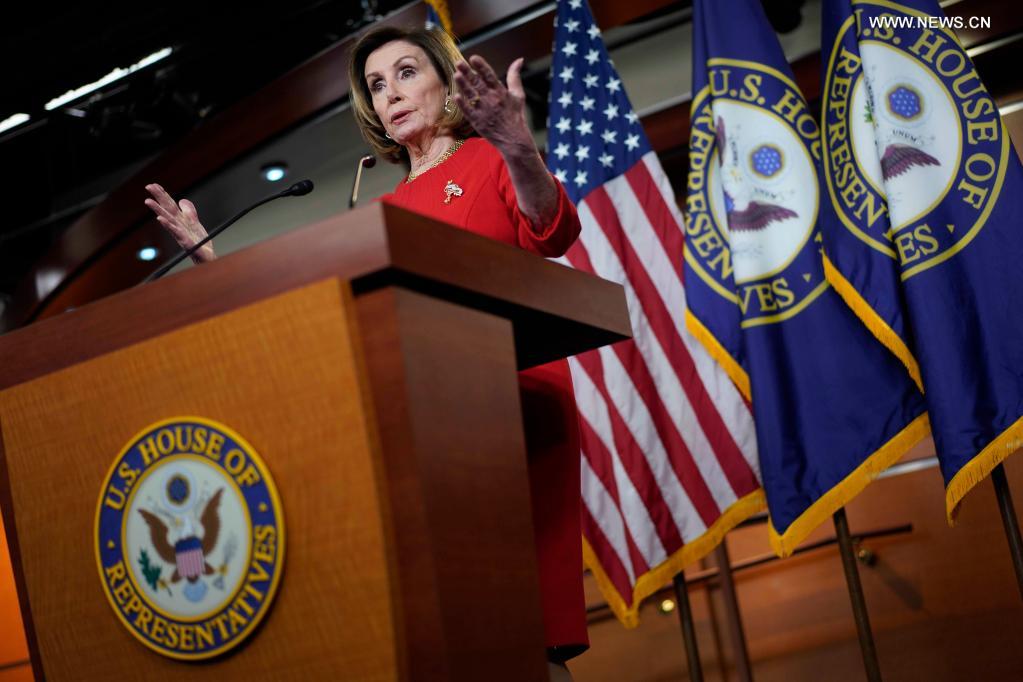By Abu Naser Al Farabi
Thanks to the U.S. inflated threat perception about China's ascendance and framing of every aspect of international affairs in light of its poorly defined "great power competition" framework, its foreign policy continues to lose the activist spectrum and well-articulated self-vision.
Taking on the interstate competition with China as a blueprint for foreign policy rather than a natural characteristic of global affairs, its foreign policy is increasingly dictated by every move China makes in its global posture.
As a result, American foreign policy has increasingly become helmless, thereby failing "to clarify its strategy and regain control over the global narrative." The United States, as reported by The Economist, is at dire risk of losing arguments about international relations and its role in them. Hence, Washington's current foreign policy disposition is awfully akin to the very aspect of its foreign policy during the Cold War.
Ali Wyne, senior analyst with Eurasia Group's Global Macro-Geopolitics practice, has precisely pointed out this dominant feature of U.S. foreign policy in his recently published book "America's Great-Power Opportunity: Revitalizing U.S. Foreign Policy to Meet the Challenges of Strategic Competition."
While drawing parallels to the aspects of the current U.S. foreign policy with those of the Cold War, he says, "Washington proved to be incapable of distinguishing between the core and the periphery of the postwar order because it feared that its vital national interests were implicated wherever Moscow asserted itself."
Just replace Moscow with Beijing, and one could easily admit the resemblance of Washington's cold war mindset in its current strategic policy orientation toward China.
Owing to the extreme policy fixation on China, the United States has been drifting away from focusing on the gradual democratic decline and increasing chaos at home. Its much-touted democratic system seems to be already tattered by rising inequality, corporate dominance in politics, and growing disenfranchisement among the minorities.
Furthermore, escalating political polarization of the very democratic institutions that the U.S. once boasted of are accelerating the erosion of popular faith in those institutions.
Downcast by substantial damages inflicted during the Trump era, Americans and the world had expected that Joe Biden's presidency could at least reflux the democratic decline to some extent. But Biden, instead of redirecting America's focus on mending the domestic mayhem, has been walking the Trump line, except for his throwaway rhetoric and reorientation of trans-Atlantic relations.
Furthermore, its absurdly-analogized and aggressively-postured cold-war-like "containment policy" against China poses a potential risk of dragging the world into another great power catastrophe. The current political establishment is swarmed with hawks aspiring to be the next George Kennan, the 20th-century American diplomat who helped shape the American post-war "policy of containment" against the Soviet Union. In their efforts to keep their politico-military profiteering machinery on, and in a broad stroke to mask America's policy blunders over the decades, they continue to militarize the containment endeavor against China.

U.S. House Speaker Nancy Pelosi speaks during her weekly press conference on Capitol Hill in Washington, D.C., the United States, on May 13, 2021. [Photo by Ting Shen/Xinhua]
The current American political leadership needs to recognize two bitter truths. First, America has limits in wielding unilateral influence in the changing multi-polar global landscape given its relative decline, particularly over the last couple of decades.
The ongoing conflicts in Ukraine and subsequent U.S. failure to erect a ubiquitous global consensus against Russia have demonstrated that the global order has undergone a remarkable change. The Western world needs to accept that they are not entitled to force other countries as much as they used to do, whether it is through their gunboat diplomacy or capitalist muscle.
Second, China is not to a great extent the Soviet Union or what it was just a couple of decades ago. The recent visit by House Speaker Nancy Pelosi to China's Taiwan region, and the subsequent counter-responses by China, have shown that "China is now a fully-fledged peer competitor to the United States with the capacity to retaliate along multiple fronts." Wielding the same containment weapon galvanized by the similar cold war hostility will certainly push the world toward inevitable great power tragedy.
For its own betterment and to prevent the current competition between two major powers from spinning out of control, and eventually bumping into a great power tragedy, America restrained cohabitation with China. To do so, at first, it needs to exorcise the cold-war phantom from its very political establishment and retrench from the current policy position, still overwhelmed with the conceit of bygone "American indispensability and unipolarity," in line with the changing global political spectrum.
The author is a Dhaka-based columnist and analyst focusing on international politics, especially Asian affairs.

 中文
中文



